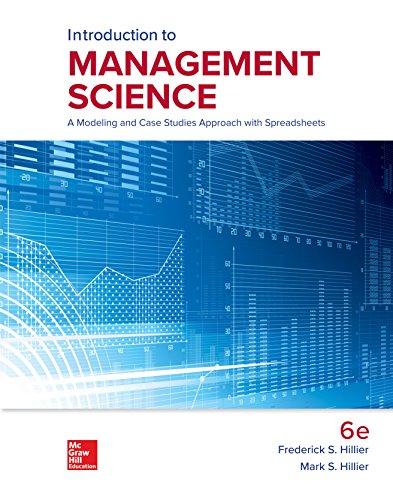Question
Kindly provide an accurate answer for the following: 1. According to Scott and Morris (2018), what is the definition of strategic human resources management? Select
Kindly provide an accurate answer for the following:
1. According to Scott and Morris (2018), what is the definition of strategic human resources management?
Select one:
a.Aligning HR activities with organizational goals
b.Arranging company outings for employees
c.Managing payroll and benefits
d.Processing employee forms
2. In Malaysia, which employees are covered under the Employment Act for the requirement of a formal written contract of employment?
Select one:
a.Employees with monthly wages exceeding RM2,000
b.Employees working in domestic service
c.All employees regardless of wages or job roles
d.Employees engaged in manual labor
3. What are the three levels of analysis involved in needs assessment for training, according to Mello (2015)?
Select one:
a.Organizational, financial, individual
b.Organizational, task, individual
c.Organizational, task, managerial
d.Strategic, operational, individual
4. What is a key challenge faced by organizations in delivering effective training experiences in a remote work environment?Select one:
a.Difficulty in maintaining a sense of connection among dispersed teams
b.Reduced demand for virtual training methods
c.Overabundance of in-person training opportunities
d.Lack of technology limitations
5. What is interference in the context of training design, according to Mello (2015)?
Select one:
a.Inconsistency in training delivery
b.Overreliance on technology in training
c.Prior learning or established habits acting as obstacles
d.Lack of engagement in the training process
6. What is the primary goal of strategic Human Resource Management (HRM)?
Select one:
a.Ensuring compliance with labour laws
b.Maximizing administrative efficiency
c.Facilitating international expansion
d.Aligning human capital with strategic objectives
7. What is the primary purpose of the recruitment process?
Select one:
a.To review candidates' qualifications and experience
b.To determine compensation packages
c.To provide a pool of qualified job candidates
d.To assess employee performance
8. What is the purpose of initial assessments in the selection process?
Select one:
a.To conduct background checks on candidates
b.To gather additional information about candidates' skills and experience
c.To evaluate candidates' performance in interviews
d.To extend job offers to selected candidates
9. What is the purpose of onboarding in the induction process?
Select one:
a.ASSESSING EMPLOYEE PERFORMANCE
b.PROVIDING TRAINING ON JOB-SPECIFIC SKILLS
c.SOCIALIZING NEW EMPLOYEES TO THE ORGANIZATION
d.REVIEWING COMPANY POLICIES
10. What is the purpose of the evaluation and decision-making step in the selection process?
Select one:
a.To conduct initial assessments
b.To review candidates' qualifications and experience
c.To extend job offers to selected candidates
d.To determine the best fit for the role and the organization
11. What is transfer in the context of training design, according to Mello (2015)?
Select one:
a.The transportation of training materials to different locations
b.The exchange of knowledge between trainers and trainees
c.The movement of employees to different departments after training
d.The extent to which learning is applied to the actual job setting
12. What method is used to evaluate training effectiveness through pre-and post-training assessments and performance improvement measures?
Select one:
a.POST-TRAINING SURVEYS
b.PRE-TRAINING ASSESSMENTS
c.FEEDBACK FROM PARTICIPANTS
d.TRAINING EVALUATIONS
13. What type of training is designed to address specific skill gaps and support employee learning and growth?
Select one:
a.SOFT SKILLS TRAINING
b.COMPLIANCE TRAINING
c.MANAGEMENT DEVELOPMENT PROGRAMS
d.TECHNICAL SKILLS TRAINING
14. Which document outlines the terms and conditions of employment, including job duties, compensation, and termination procedures?
Select one:
a.Job description
b.Job specification
c.Employment contract
d.Offer letter
15. Which era marked the rise of personnel departments primarily focused on ensuring workforce stability and compliance with regulations?
Select one:
a.Renaissance Era
b.Medieval Era
c.Industrial Era
d.Digital Era
16. Which learning principle emphasizes learner participation and engagement in the learning process?
Select one:
a.Multimodal Learning
b.Active Learning
c.Chunking
d.Repetition and Practice
17. Which Malaysian legislation focuses primarily on resolving trade disputes and regulating trade unions?
Select one:
a.Employees Provident Fund Act 1991 (EPFA)
b.Industrial Relations Act 1967 (IRA)
c.Minimum Retirement Age Act 2012 (MRAA)
d.Occupational Safety and Health Act 1994 (OSHA)
18. Which of the following reflects a significant shift in HRM philosophy towards recognizing employees as strategic assets?Select one:
a.Digital Era
b.Early 20th century
c.Industrial Era
d.1960s-1970s
19. Who is responsible for conducting training needs assessments and designing training programs?
Select one:
a.LINE MANAGERS AND SUPERVISORS
b.OPERATIONS DEPARTMENT
c.HUMAN RESOURCES (HR) DEPARTMENT
d.FINANCE DEPARTMENT
20. Who is responsible for identifying specific skill gaps within their teams and recommending relevant training programs?Select one:
a.Marketing department
b.Line managers and supervisors
c.Human Resources (HR) department
d.Operations department
Step by Step Solution
There are 3 Steps involved in it
Step: 1

Get Instant Access to Expert-Tailored Solutions
See step-by-step solutions with expert insights and AI powered tools for academic success
Step: 2

Step: 3

Ace Your Homework with AI
Get the answers you need in no time with our AI-driven, step-by-step assistance
Get Started


